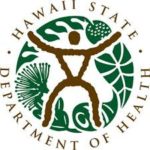
The Hawaiʻi Department of Health (DOH) has identified an additional probable case of monkeypox in an Oʻahu resident who attended a social gathering and did not travel off-island.
The individual presented with symptoms consistent with monkeypox. Testing completed by the State Laboratories Division detected orthopoxvirus—monkeypox is a type of orthopoxvirus.
Yesterday, the U.S. Centers for Disease Control and Prevention confirmed that the first case reported on June 3 tested positive for monkeypox. Confirmatory testing for the second and third cases is pending with the CDC.
At this time, risk to most Hawaiʻi residents remains low. Vaccination is not recommended for the general public, but is considered on an individual basis for close contacts of probable cases. DOH is conducting contact tracing and working with federal authorities to order vaccines and therapeutics from the Strategic National Stockpile.
Nationally, the CDC has reported that many cases have been among gay, bisexual, and other men who have sex with men or those who recently travelled abroad or to the continental United States. However, anyone who has been in close contact with someone with monkeypox is at higher risk of infection, regardless of a person’s gender, sexual orientation, or travel history.
Monkeypox is a rare disease caused by the monkeypox virus. Infection begins with flu-like symptoms such as fever, headache, muscle aches, chills, exhaustion, and swollen lymph nodes. Infection progresses to a rash or sores, often on the hands, feet, chest, face, or genitals. Individuals generally become ill within 21 days of exposure. The disease can spread through close, prolonged contact with an infected person or animal. This includes direct contact with body fluids, lesion material, or items used by someone with monkeypox. Monkeypox can be spread through large respiratory droplets. These droplets generally cannot travel more than a few feet, so prolonged face-to-face contact is required.
Individuals with symptoms consistent with monkeypox infection should immediately contact their healthcare provider.